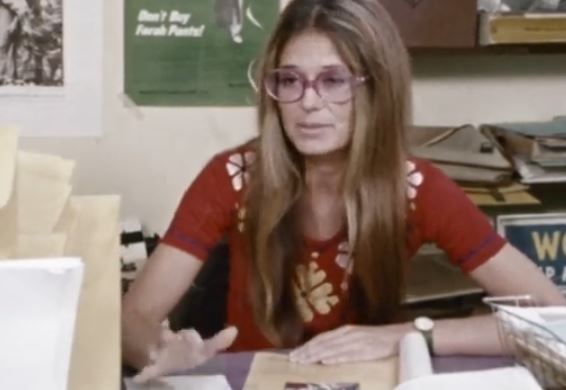July 1st marks the anniversary of the first official issue of the groundbreaking magazine Ms in 1972, featuring Wonder Woman towering over a city. However, it had debuted a few months earlier, in December 1971, as a New York Magazine insert, led by feminist and journalist Gloria Steinem.
It was the first magazine in the United States founded and run exclusively by women—a bold response to a time when terms like “domestic violence” and “sexual harassment” were not even in the public vocabulary. Ms gave a name to experiences that had been silenced and invisible until then. From its first pages, the magazine brought to the forefront issues such as discrimination in the workplace, the representation of Black women, the de-sexualization of language, and abortion rights.
Dear Ms: A Revolution in Print , HBO’s new documentary that premiered at the Tribeca Film Festival, takes an in-depth look at the magazine’s impact. Through archival footage and interviews with founders, editors, and activists, it illuminates the historical conflicts, the path of the feminist movement, and the enduring issues that still demand resolution.
Each of the three directors – Salima Koroma, Alice Gu and Cecilia Aldarondo – approaches the work with a respectful but also critical eye. From domestic violence and the threats faced by the magazine’s women, to issues of race and pornography, the series is not afraid to highlight the internal tensions, mistakes and victories of a collective enterprise that shaped American cultural history.
Ms wasn’t perfect. As Black and queer contributors like Alice Walker and Michelle Wallace note, the concept of intersectionality—that is, understanding intersecting forms of oppression—was not fully embedded from the start. However, the magazine served as a platform for learning, self-criticism, and growth, opening up space for discussions that few dared to have at the time.
The phrase “if something has no name, you can’t react” sums up the core of Ms. The magazine gave a voice to millions of women, strengthened legislative protections on issues of abuse and harassment, and became a vehicle for shaping political consciousness. Its legacy lives on – not just as a memory of a struggle, but as a call to action to imagine a more just, open, and inclusive world.
Inclusion, as highlighted in Dear Ms , is never static. It is a process of constant renegotiation, learning, and daring. That is why today, more than ever, we must look to those who paved the way, while recognizing that the struggle for equality is always present.
*With data from theguardian.com











